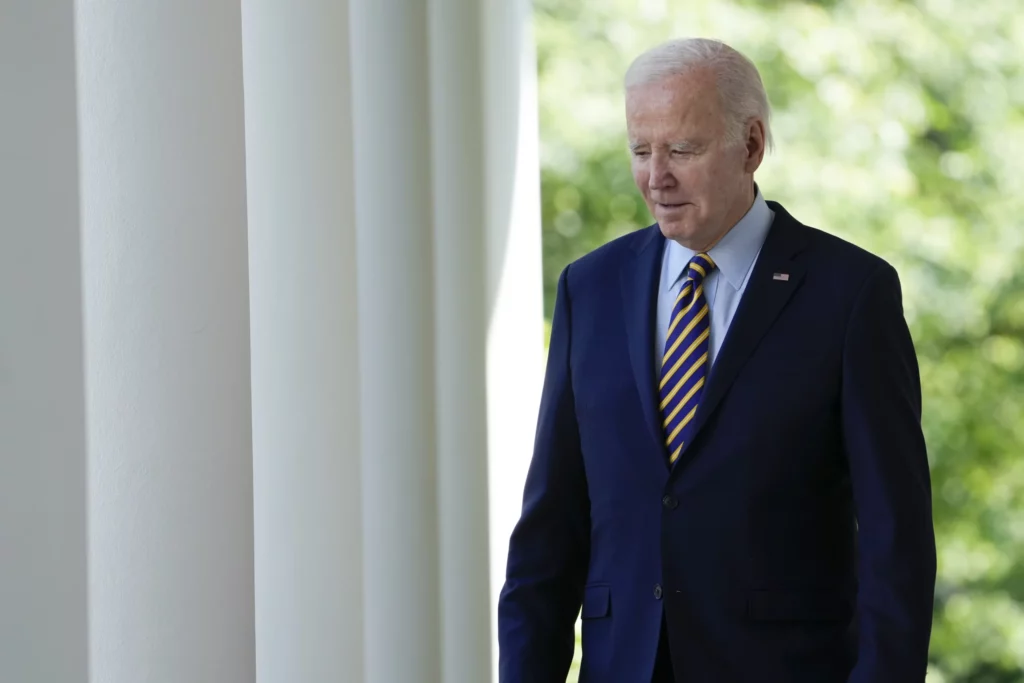
President Joe Biden’s decision to commute the death sentences of 37 federal inmates has sparked an uproar in the legal and political worlds, with critics calling the move a blatant overreach of executive power.
The action, taken in Biden’s final days in office, converted the sentences of those on federal death row to life imprisonment without parole, leaving only three inmates awaiting federal execution.

Former federal prosecutor Andy McCarthy criticized the decision as a misuse of presidential authority, arguing it bypassed congressional intent. “I think it’s yet another abuse of the pardon power,” McCarthy told Fox News on Monday. “He wiped the slate clean on everyone else, and he did it in a way that is a categorical change of the law that’s for Congress to make.”
Legal experts slam move as inconsistent and contrary to popular positions
McCarthy also noted the apparent inconsistency in Biden’s approach, pointing out that the president did not spare the sentences of high-profile death row inmates such as Dylann Roof, convicted of the racist massacre of nine black churchgoers in Charleston, South Carolina; Boston Marathon bomber Dzhokhar Tsarnaev; and Pittsburgh synagogue shooter Robert Bowers.
“Last week, the Biden Justice Department filed death charges against somebody … who I don’t think is even a terrorism case, it’s a grisly murder,” McCarthy said of the UnitedHealthCare CEO murder suspect Luigi Mangione, highlighting the inconsistencies for Biden’s own classifications for terroristic acts.
“Now today, he’s wiping the slate clean on death penalty charges brought by other administrations. But not in cases where he and his Justice Department actually had to deal with the victims and obviously the families of the victims of these brutal homicides,” McCarthy added.
Civil rights attorney Leo Terrell was even more scathing, describing the decision as a “slap in the face” to victims’ families. “Children were murdered, a naval officer was murdered — these are the worst of the worst,” Terrell said. “Joe Biden, who is mentally unfit to stand trial for himself, is not making these decisions. This is the social progressive left dictating policy as Biden burns down the house in his last 30 days in office.”
Terrell emphasized that the decision contradicted public sentiment. “52 to 53% of Americans support the death penalty,” he said. “These murderers received justice through trials and a death penalty phase. Biden’s actions erase that.”
Biden, who kicked off his last-ditch acts of grace by pardoning his own son Hunter Biden on Dec. 1, defended his decision in a statement, acknowledging the heinous crimes but emphasizing the need for systemic change.
“Make no mistake, I condemn these murderers, grieve for the victims of their despicable acts, and ache for all the families who have suffered unimaginable and irreparable loss,” Biden said in a statement.
Mixed public reactions spotlight the death penalty divide
Victims’ families expressed a mix of reactions, according to the Associated Press. Heather Turner, whose mother was killed during a 2017 bank robbery, called the move a “gross abuse of power,” accusing Biden of disregarding the victims. Others, like retired police officer Donnie Oliverio, said the commutations reflected Biden’s faith and moral conviction.
Supporters of Biden’s decision, including advocacy groups like the ACLU, argue that it highlights the flaws of capital punishment and advances criminal justice reform. Across the pond, major religious figures like Pope Francis recently prayed that the sentences of death row prisoners in the United States “be commuted or changed.”
But critics in Congress, including Republican Sen. Tom Cotton, see it as another example of Democrats favoring “depraved criminals over their victims, public order, and common decency.”
For many, the debate underscores the deep divisions in the U.S. legal system and the enduring controversy surrounding the death penalty.
Biden adds complexity to Trump’s capital punishment plans
The commutations have fueled a political firestorm as President-elect Donald Trump, an advocate for expanding capital punishment, prepares to take office again. Trump’s communications director, Steven Cheung, called the decision “a slap in the face to the victims, their families, and their loved ones.”
Biden’s decision is likely to pose at least an optical hurdle for Trump as he aims to ramp up capital punishment over his next four years in office. Unlike his ability to reverse his predecessor’s executive orders, commuted death sentences cannot be reapplied by a future president.
Meanwhile, the Justice Department is nearing the release of its long-awaited review of the lethal injection protocol introduced by the Trump administration in 2019. This protocol employs a single sedative, pentobarbital, for executions, a method adopted amid shortages of other drugs traditionally used.
Critics and death penalty opponents argue that pentobarbital can inflict severe pain during a prisoner’s final moments. Activists suggest the DOJ’s findings could strengthen calls for clemency.
CLICK HERE TO READ MORE FROM THE WASHINGTON EXAMINER
Additionally, the Supreme Court is weighing a high-profile case surrounding a longtime Oklahoma inmate, Richard Glossip, who is slated for capital punishment. Glossip has argued, and even gained support from state Attorney General Gentner Drummond (R), for the justices to consider whether he was falsely accused of murder in the 1990s.
A decision in the Glossip case is expected before the end of June.








